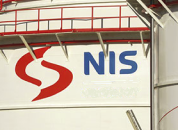
External Audit
In accordance with the Law on Business Companies and the Articles of Association of NIS j.s.c. Novi Sad, the company auditor is appointed by the Shareholders’ Assembly based on the motion of the Board of Directors. The company auditor is appointed at ordinary Shareholders’ Assembly meeting.
Appointed Auditors
2007 – Deloitte d.o.o. Belgrade
2008 – KPMG d.o.o. Belgrade
2009 – PricewaterhouseCoopers d.o.o. Belgrade
2010 – PricewaterhouseCoopers d.o.o. Belgrade
2011 – PricewaterhouseCoopers d.o.o. Belgrade
2012 – PricewaterhouseCoopers d.o.o. Belgrade
2013 – PricewaterhouseCoopers d.o.o. Belgrade
2014 – KPMG d.o.o. Belgrade
2015 – PricewaterhouseCoopers d.o.o. Belgrade
2016 – PricewaterhouseCoopers d.o.o. Belgrade
2017 – PricewaterhouseCoopers d.o.o. Belgrade
2018 – PricewaterhouseCoopers d.o.o. Belgrade
2019 – PricewaterhouseCoopers d.o.o. Belgrade
2020 – KPMG d.o.o. Belgrade
2021 – PricewaterhouseCoopers d.o.o. Belgrade
2022 – FinExpertiza d.o.o. Belgrade
2023 – FinExpertiza d.o.o. Belgrade
2024 – FinExpertiza d.o.o. Belgrade
Mandatory change of auditor
In accordance with the Law on Capital Market and taking into account the fact that NIS j.s.c. Novi Sad is a public joint-stock company, a legal entity performing the audit can only perform up to five consecutive annual audits of financial statements.
Auditors’ reports
The auditor’s report on the performed audit of annual financial reports and annual consolidated financial reports are adopted at an ordinary Shareholders’ Assembly meeting, to which the auditor must be invited.


